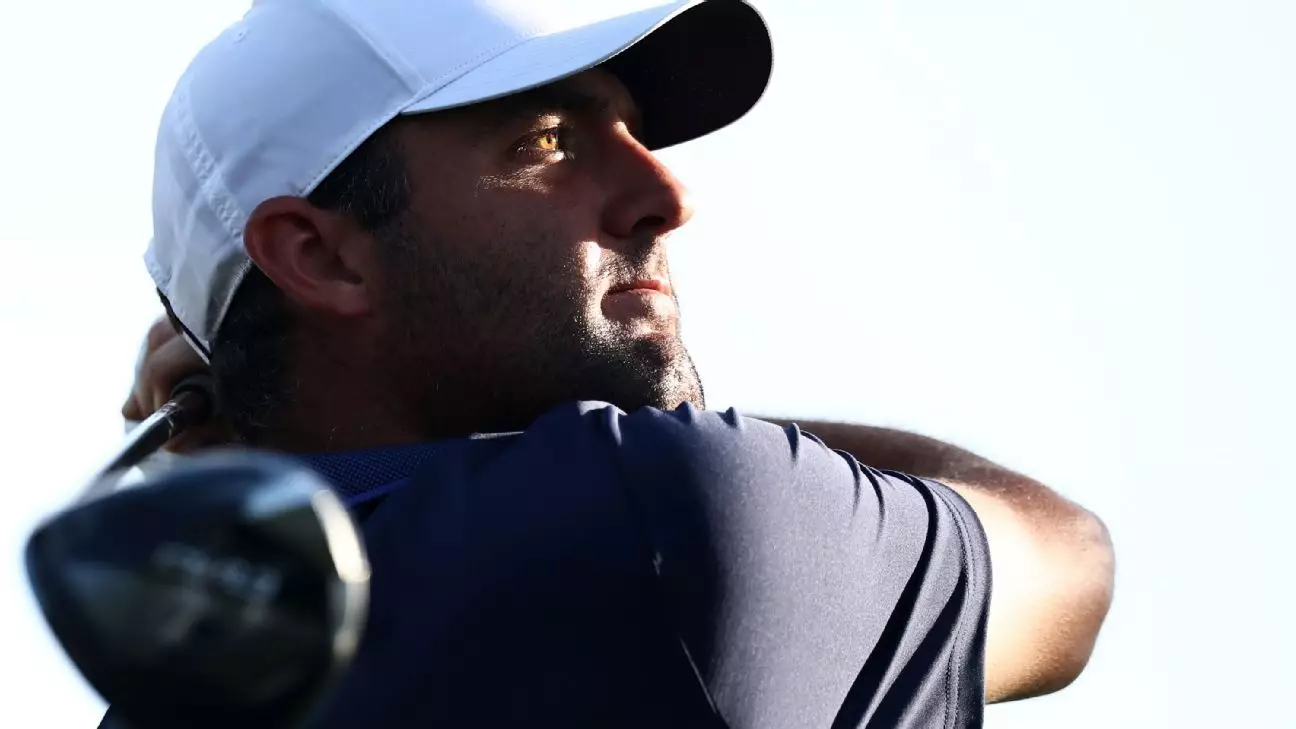In the high-stakes world of professional golf, where precision and performance often define a player’s entire career, the recent controversies surrounding driver testing have raised crucial questions about fairness and integrity on the course. Masters champion Rory McIlroy and world No. 1 Scottie Scheffler were both punished when their drivers were deemed nonconforming by the United States Golf Association (USGA) just days before the PGA Championship at Quail Hollow Club. Such sanctions not only hinder individual players but also cast a long shadow over the sport’s credibility. The testing protocols employed by the USGA, while ostensibly designed to ensure a level playing field, risk alienating the very players they seek to protect.
The Players Speak: A Call for Comprehensive Testing
What makes these recent revelations even more troubling is the apparent sense of futility experienced by players like Scheffler and McIlroy. Scheffler, after grappling with his newly sanctioned driver, noted the critical need for thorough testing, advocating not just for selective scrutiny of equipment but a more universal approach. As he aptly stated, if testing is to be taken seriously, it should not just involve “a third of the field.” When players of such high caliber are subjected to potentially career-altering decisions, it’s prudent to ensure that everyone—regardless of their standing or recent performance—is tested. After all, it’s not just about individual glory but about maintaining the integrity of the sport itself.
Driver Testing: Necessary Precaution or Overreach?
The USGA argues that driver testing is a necessary precaution to prevent an unfair advantage that players might unintentionally leverage over time. As drivers deteriorate and their faces “creep” or thin with wear, a well-used club could become a secret weapon that gives seasoned pros an edge over their younger rivals. However, this rationale overlooks the skill, strategy, and physical prowess required to wield such powerful tools on the course. Yes, drivers can enhance a player’s game, but it is ultimately the golfer’s skill that determines their fate in competition. By imposing stringent regulations on equipment while ignoring the broader context of skill and preparation, golf is in danger of becoming a bureaucratic exercise rather than an exhibition of talent.
Shuttered Voices and Silenced Players
The scathing silence of McIlroy post-tournament speaks volumes about the emotional toll such policies have on professional athletes. Imagine pouring your heart into a tournament, only to have an essential part of your performance deemed unacceptable—yet being unable to voice your opinions due to the fear of reprimands or penalties. When McIlroy left the course without addressing reporters for the fourth consecutive day, one couldn’t help but wonder if it was a silent protest against a system that leaves little room for individualism or dissent. The gravity of this situation emphasizes the need to reevaluate how these rulings affect not just the game, but also the players’ mental health and emotional well-being.
Integrity vs. Innovation: Striking a Balance
The fight for integrity in golf must also embrace innovation. Known for being a sport steeped in tradition, golf has a unique opportunity to balance its rich history with the realities of modern competition. This balance is essential not just for the players at the top but for the younger generation looking to break into the sport. Rigorous and equitable testing protocols are undoubtedly needed, but they should foster an environment of collaboration, not exclusion. As current champions advocate for universal testing, one hopes that the governing bodies will adapt and renew their commitment to creating a fairer, more inclusive environment for all players.
In the end, golf should remain a sport where skills outweigh equipment issues. Let’s cherish the talent that these players bring to the greens and ensure that the system supports rather than undermines that talent. Only then can we hope to cultivate a culture of fair play and respect that honors the legacy of the game.


Leave a Reply